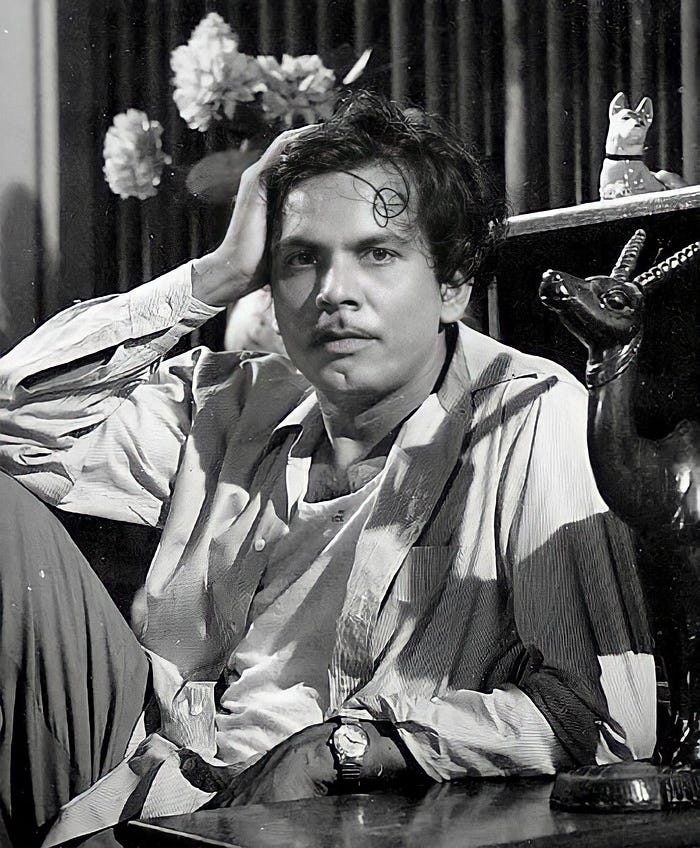Remembering Hindi cinema’s Gentleman comedian Johnny Walker on his birth anniversary(11/11).

Remembering Hindi cinema’s Gentleman comedian #JohnnyWalker on his birth anniversary(11/11).
Badruddin Jamaluddin Kazi was one of twelve siblings in a weaving teacher’s family. The family relocated to Mumbai after his father lost his job. In Mumbai, Kazi worked as a bus conductor for Bombay Electric Supply & Transport (BEST), where he became popular for entertaining passengers with his humorous announcements and impressions.
Kazi always harboured dreams of a film career, admiring actor Noor Mohammed Charlie and emulating movie stunts. His entry into the film industry came unexpectedly when actor Balraj Sahni, after witnessing Kazi’s entertaining conduct, introduced him to actor-director Guru Dutt.
While working as a bus conductor, Kazi, later known as Johnny Walker, hoped to be discovered for his talent in films. His opportunity arose when Balraj Sahni, who was either scripting “Baazi” (1951) or acting in “Hulchul,” was amused by Kazi’s portrayal of a drunkard and suggested he show this to Guru Dutt.
This led to Kazi’s casting in “Baazi,” where Guru Dutt, inspired by his performance, named him Johnny Walker after the Scotch whisky brand.
Walker became a staple in Dutt’s films, encouraged to improvise and draw from his life experiences. Although he was renowned for his comedic roles, Walker grew disillusioned later in life, feeling comedians were undervalued.
He tried, with limited success, to take on lead roles in films like “Johnny Walker” and “Mr. Qartoon,” but shone in classics such as “Mere Mehboob,” “C.I.D.,” “Pyaasa,” and “Chori Chori.” His peak was in the 1950s and 1960s, with his career waning after Dutt’s death in 1964. He collaborated with directors like Bimal Roy and Vijay Anand.
A popular box office draw, he was often requested for songs in movies, a trend he pioneered. Notably, he was the second actor after Madhubala to have a film named after him, with two such titles to his credit, and he was a trendsetter in many ways, including being the first actor to have a secretary, to not work on Sundays, and to introduce colloquial language in cinema, as seen in “Taxi Driver.” Walker also ventured into production and direction with the 1985 film “Pahunche Huwey Log.”
